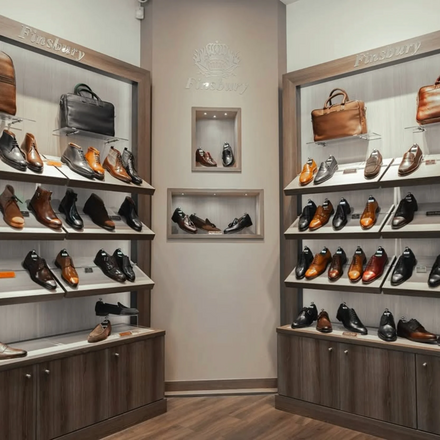Strategic advantages of franchising

Franchising fosters efficient expansion, utilizing local expertise for growth and brand visibility in diverse markets.
Franchising has become a fundamental tool for companies looking to expand their market reach. Through the franchise model, businesses can efficiently establish new locations, contributing to a steady growth pattern. This approach not only allows companies to leverage local expertise and resources but also facilitates greater customer engagement and brand visibility in diverse markets.
Franchising serves as a significant avenue for establishing brand recognition globally, with several prominent franchises achieving widespread acclaim across diverse sectors. In the food industry, notable franchises such as McDonald's, Subway, Pizza Hut, and La Donuteria have garnered considerable recognition. Similarly, in the educational domain, franchise companies like Edukido, Coders Lab, Verbatoria, Lala English, and Confiserie Leonidas have made their mark. In the apparel sector, brands such as Diverse, LOFT, and YARGICI have gained prominence through franchising, while beauty franchises like Depil concept, Martelle Studio, and Nail Factory have also made significant strides. These examples underscore the significance and effectiveness of the franchising model in facilitating business expansion and brand establishment worldwide.
Cost-effective expansion
With franchisees bearing the costs associated with opening new locations, franchisors can effectively reduce expansion expenses and allocate resources towards brand development. This strategic approach allows franchisors to optimize their investments and focus on fostering brand growth.
Revenue maximization
The proliferation of franchisees and locations translates into increased revenue streams and profitability for franchisors, without incurring additional operational costs. This influx of revenue bolsters the financial health of the business, driving sustained growth and prosperity.
Scalability
The franchise model facilitates seamless scalability for franchisors, as each new location contributes to revenue generation without necessitating additional efforts from the franchisor. This scalability enhances operational efficiency and supports long-term business expansion.
Access to local expertise
Franchisors can leverage the local knowledge and expertise of franchisees to gain valuable insights into market needs and preferences. This enables them to tailor their offerings to local conditions, thereby enhancing customer satisfaction and market penetration.
Building brand strength
Through collaboration with franchisees, franchisors can cultivate a robust brand identity and reputation, fostering continued growth and success. This collaborative approach strengthens brand loyalty and enhances brand recognition in the marketplace.
Streamlined management
The franchise model allows franchisors to delegate operational responsibilities and management tasks to franchisees, enabling them to focus on strategic management and brand development. This streamlined approach optimizes resource allocation and supports organizational growth.
Customer relationship development
By establishing a presence in multiple locations, franchisors can forge closer relationships with customers at the local level. This fosters customer loyalty and trust, driving repeat business and enhancing brand credibility.
Leveraging franchisee capabilities
Franchisors can tap into the talents and resources of franchisees to drive innovation and development within the franchise network. This collaborative exchange of ideas and expertise accelerates network growth and fosters a culture of innovation.
Enhancing business stability
Through the franchising model, franchisors can mitigate business risks by transferring responsibilities and risks to franchisees. This reduces exposure to market fluctuations and enhances the stability and resilience of the business in changing market conditions.
Featured franchises
No featured franchises
Breaking news
Show all
Next Engineers - a global STEAM Education
Innovative STEAM education franchise empowering children through hands-on engineering learning, combining structured curricula with scalable...

LA BARBE DE PAPA
Step into a premium grooming network built for growth, offering a structured franchise model with clear financials and strong operational support.

Pandora Greenbox franchise
Pandora Greenbox offers a scalable fast-casual concept combining healthy cuisine, smart design and strong unit economics across Europe.

Expanding premium footwear through franchising
A French footwear brand expanding through franchising, offering structured entry into premium shoe retail with established operational standards.



